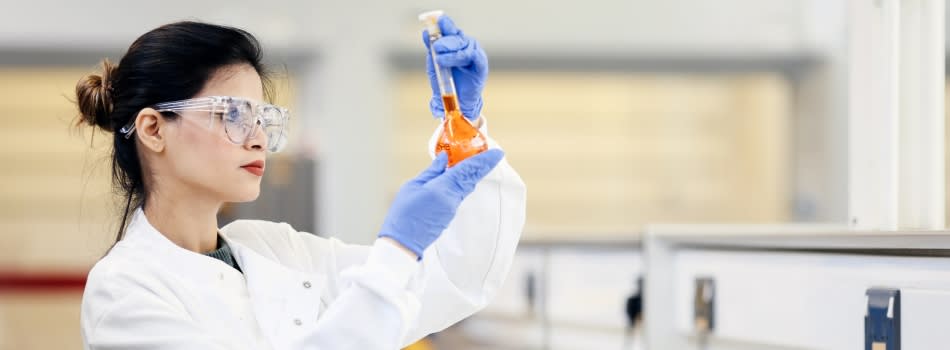Prof Adrian Dobbs, Dr G Getti, Dr J Miest
No more applications being accepted
Funded PhD Project (Students Worldwide)
About the Project
SCIENTIFIC EXCELLENCE
In developing a new therapeutic agent, there are two questions to address: how to get the drug to the specific site in the body where it is needed, and second, does it do what we want it to do at the target site, without undesirable side effects. These requirements are incredibly challenging e.g. how do you ensure that an anti-parasitic drug only kills the parasite and not the host?
This proposal aims to tackle these questions in the field of the parasitic disease, leishmaniasis. Leishmaniasis affects many of the poorest people on earth, with 700,000-1 million new cases and 20-30,000 fatalities per annum.1 A successful project will positively affect the health and ageing of these people.
AIM AND HYPOTHESIS
Mitochondria are found within all cells and are primarily responsible for generating energy. The inner membrane of the mitochondria has a negative electrochemical potential2 and can therefore be targeted by positively charged compounds. Crucially, this membrane potential is subtly different in different species.
Phosphonium salts are positively charged compounds that are rapidly emerging as mitochondria-targeting agents, already being used in imaging systems.3
The project combines the mitochondria-targeting of phosphonium salts and to append a toxic moiety, e.g. an organometallic agent4, to kill the cell. Fine tuning of the magnitude of the charge will specifically target the parasitic mitochondria and not those within the host’s cells.
PRELIMINARY RESULTS
Dobbs supervised a Commonwealth split-site PhD studentship in 2017, who generated a small library of compounds of this general structure and tested these with Getti. These demonstrated modest activity (IC50 = 4 - 45 M) but validated the hypothesis. The project now requires a full time researcher to generate libraries of compounds and conduct mode of action studies.
METHODOLOGY AND INNOVATIONS
The project will be split 50% chemistry (preparing compounds, supervised by Dobbs), 40% molecular biology (testing the compounds, supervised by Getti/Miest) and 10% with collaborators (PHE, LJMU, NTU & Edinburgh). The student performing the work will receive a broad interdisciplinary training.
STRATEGIC RELEVANCE
Although in recent decades there has been significant progress toward the elimination and even eradication of some neglected diseases, there is still an unmet need to discover and develop tools and strategies to diagnose, treat and interrupt transmission of neglected diseases. This is in line with the London Declaration of 2012 and the WHO Roadmap on NTDs. Thus the project proposed herein is timely and of high potential impact, potentially affecting the healthy aging and survival of millions.
INTERDISCIPLINARITY AND FIT WITH RELEVANT DTA PROGRAMME
The proposal combines two experienced researchers and one ECR with 4 external organisations. This project will be novel within the Biosciences DTA strand, offering expertise in medicinal chemistry and parasitology for the first time. Applicants must have a strong background in synthetic chemistry and will be taught molecular biology skills.
Applications
Applicants must apply using the online form on the University Alliance website at https://unialliance.ac.uk/dta/cofund/how-to-apply/. Full details of the programme, eligibility details and a list of available research projects can be seen at https://unialliance.ac.uk/dta/cofund/
The final deadline for application is Monday 8 October 2018. There will be another opportunity to apply for DTA3 projects in the spring of 2019. The list of available projects is likely to change for the second intake.
Funding Notes
DTA3/COFUND participants will be employed for 36 months with a minimum salary of (approximately) £20,989 per annum. Tuition fees will waived for DTA3/COFUND participants who will also be able to access an annual DTA elective bursary to enable attendance at DTA training events and interact with colleagues across the Doctoral Training Alliance(s).
This project has received funding from the European Union’s Horizon 2020 research and innovation programme under the Marie Skłodowska-Curie grant agreement No 801604.
References
1. World Health Organisation (http://www.who.int/news-room/fact-sheets/detail/leishmaniasis accessed 22.6.2018)
2. S.W. Perry, J.P. Norman, J. Barbieri, E.B. Brown, H.A. Gelbard, Biotechniques, 2011, 50, 98-115.
3. J. Zielonka, J. J., A. Sikora, M. Hardy, O. Ouari, J. Vasquez-Vivar, G. Cheng, M. Lopez, B. Kalyanaraman, Chem. Rev., 2017, 117, 10043–10120
4. R. W. Brown, C. J. T. Hyland, Med. Chem. Commun., 2015, 6, 1230-1243.

 Continue with Facebook
Continue with Facebook


